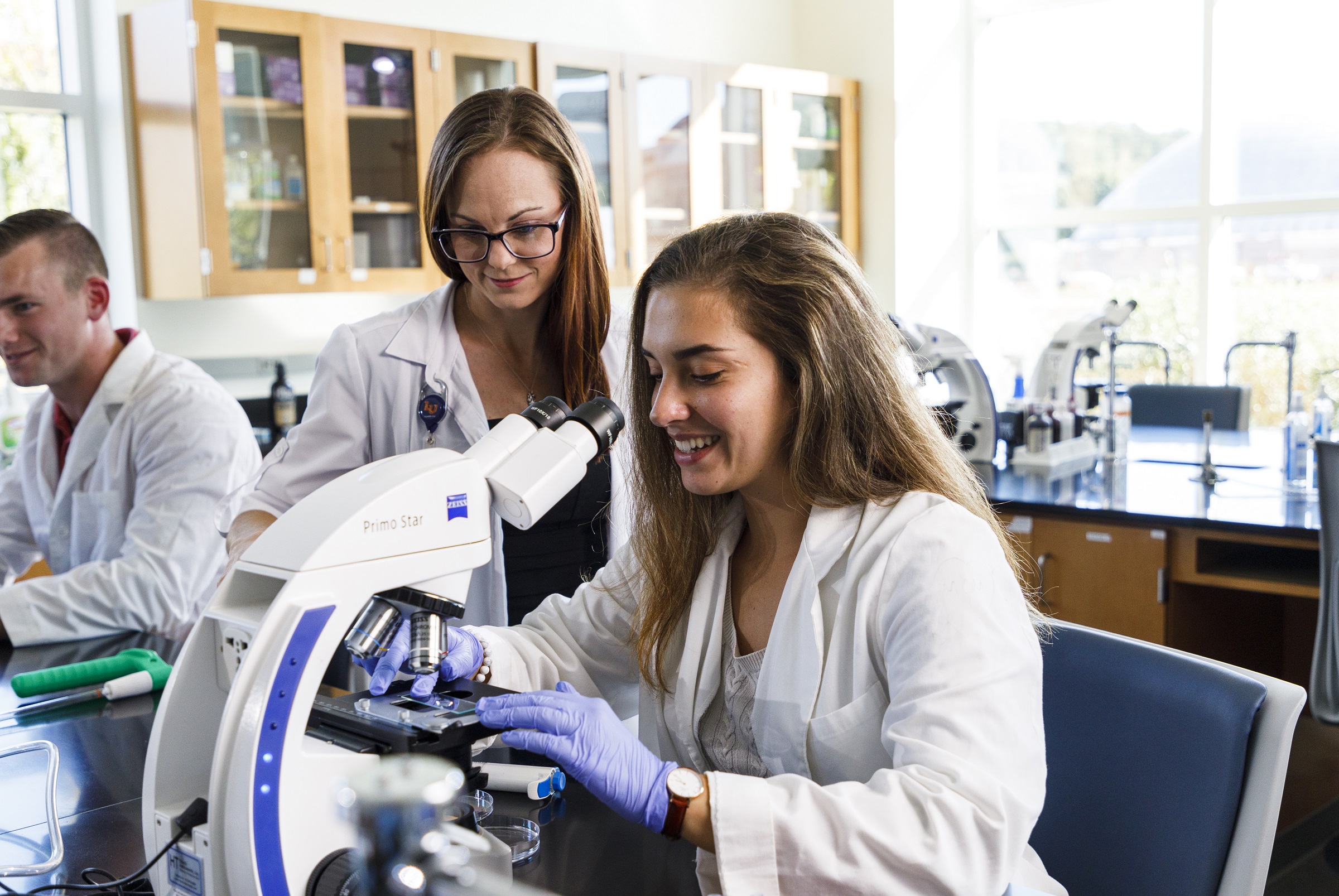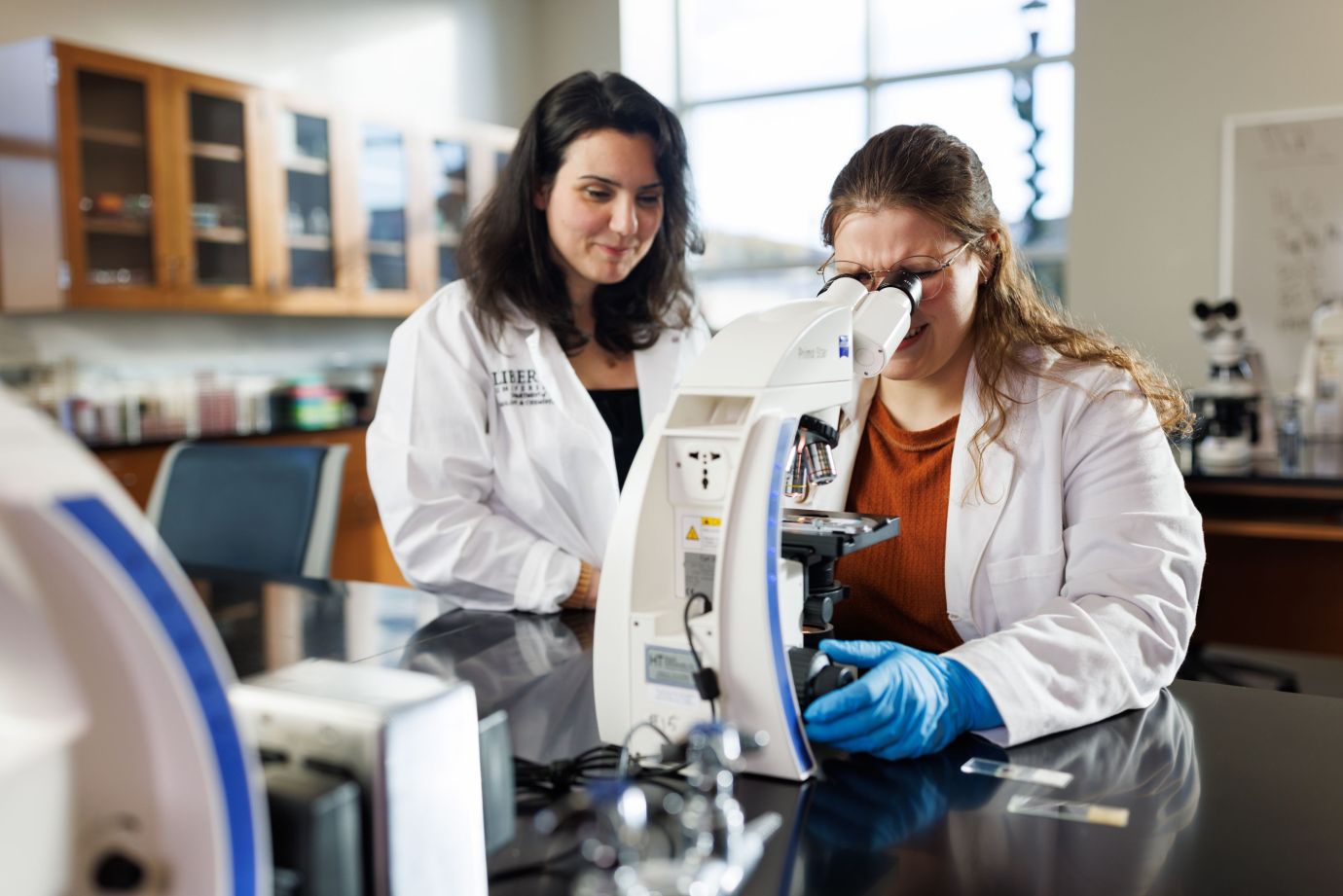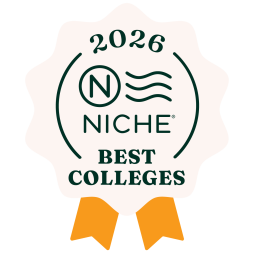
Bachelor of Science in Biology Degree
Explore the Wonder of Creation with a Bachelor’s Degree in Biology
Do you love studying living organisms and how they work? Are you fascinated with subjects like genetics, botany, and cell biology? Do you love exploring the complexity of God’s creation?
If you answered “yes” to any of these questions, then a career in biology may be right for you! Liberty’s Bachelor of Science (BS) in General Biology provides training in many areas of biology. Our program can help you take the first step toward pursuing a career in veterinary medicine, environmental biology, laboratory work, or agricultural biology, among other fields.
Are you seeking a biology science degree that combines top-notch research with a Christian worldview? If so, Liberty may have just what you need. Our goal is to help you become a Champion for Christ in your field. With guidance from our seasoned faculty, you can gain a deeper understanding of the world around you.
We’re excited to partner with you as you take this important step in your academic journey. Earn your degree today and embark on the exciting study of life!
Credit Hours
View CoursesNext start date: Aug 24, 2026

Liberty University is accredited by SACSCOC
Highlights
Highlights of Our Bachelor of Science Degree in Biology
Hands-On Experiences
Most of our science courses have a required laboratory component, allowing you to gain hands-on experience in your field.
Expert Faculty
Our biology bachelor’s courses and labs are taught by faculty with years of experience in academia and the professional world.
Well-Rounded Education
This program places an emphasis on creationism, but you’ll also study evolution to develop a well-rounded approach to scientific concepts.
Research Opportunities
We offer undergraduate science students the chance to participate in exciting research projects.
Career Potential
What Can You Do with a BS in Biology Degree?
Liberty University’s Bachelor of Science in Biology can help prepare you to pursue the following occupations:
- Agricultural biotechnologist
- Biochemist
- Biological technician
- Biomedical laboratory supervisor
- Conservation scientist
- Environmental scientist
- Food scientist
- Genetic counselor
- Medical sales representative
- Microbiologist
Please note: Many career opportunities in this field will require additional education beyond a bachelor’s degree.


#2 Best College Campus in America
At Liberty, you’ll find an affordable, high-quality education designed to help equip students like you for the real world. Our commitment to excellence has earned us recognition as the #2 Best College Campus in America by Niche.com for 2026.
Earning your degree from a nonprofit university with state-of-the-art resources like ours can help set you apart from your peers.
Courses
What Will You Study in Our Biology Bachelor’s Program?
In this program, you’ll take foundational courses in calculus, geometry, probability and statistics, and physics. These courses can help provide you with base knowledge in a variety of STEM (science, technology, engineering, and math) studies.
Your biology degree courses will focus heavily on the study of genetics, ecology, botany, cell biology, and organic chemistry. Diverse coursework like this can help you prepare for professional laboratory work or master’s-level programs.
You’ll also have the freedom to select various biology electives, so you can take classes that fit your career goals! By taking an origins course, you can evaluate the historical, philosophical, and scientific evidence for biblical creation. Our biology seminar can help you develop core research skills that are essential to a career in biology.
Featured BS in Biology Courses
BIOL 224 – General Biology I
BIOL 301 – Genetics
BIOL 310 – Ecology
BIOL 415 – Cell Biology
Degree Information
- This program falls under the School of Health Sciences
- View the Degree Completion Plan
- Check out our course catalog
- Transfer in up to 75% of the degree
BENEFITS
Why Choose Liberty’s Bachelor’s in Biology Program?
Study Under Experienced Faculty
Our professors have years of experience working in the scientific field, and many of them hold doctoral degrees. With their guidance, you can receive practical training in the classroom and laboratory. You could even assist faculty members with their ongoing research projects, allowing you to receive real-world experience and valuable mentorship!
Gain Hands-On Experience
We want to help make you a more marketable candidate for future jobs and graduate programs. Almost all of our science courses have a required laboratory component, so you can complete hands-on experiments. Additionally, you may want to participate in our exciting research projects. From algae and amphibians to conservation and DNA analysis, you can dive into the topics you’re most passionate about!
Enjoy Top-Notch Facilities
Liberty has teaching and research labs filled with state-of-the-art equipment, so you can gain experience operating the same tools used by industry professionals! Some of the instruments you’ll get to use include a DNA sequencer, an ultrasound simulator, an atomic absorbance spectrometer, and a blood chemistry analyzer.
Find Opportunities to Connect
We want you to have a fulfilling social life while you’re here on campus. We offer weekly convocation services, campus church, and small groups meant to help foster your spiritual life. Liberty is also home to over 100 student-led clubs! As a biology student, you may be interested in our Forensic Science Club or our Biology Club. Additionally, by joining our Scientific Research Society, you can hone your research skills and find opportunities for internships or paid research positions.
Admissions
How Do You Become a Bachelor’s in Biology Student?
Every application is reviewed by the admission committee on a case-by-case basis, meaning there are no set minimums for acceptance. However, all applicants must submit the following documents* for admission:
- Admission application
- Official high school transcripts
- Official college transcripts (if applicable)
- Admission essay
Results from the CLT, SAT, or ACT are not required for admission, but may be used in consideration for merit-based aid.
*Note that additional documentation may be requested by the admission committee after your application has been received.

Have Questions?
We’ll make sure you have the information you need to take your next step.